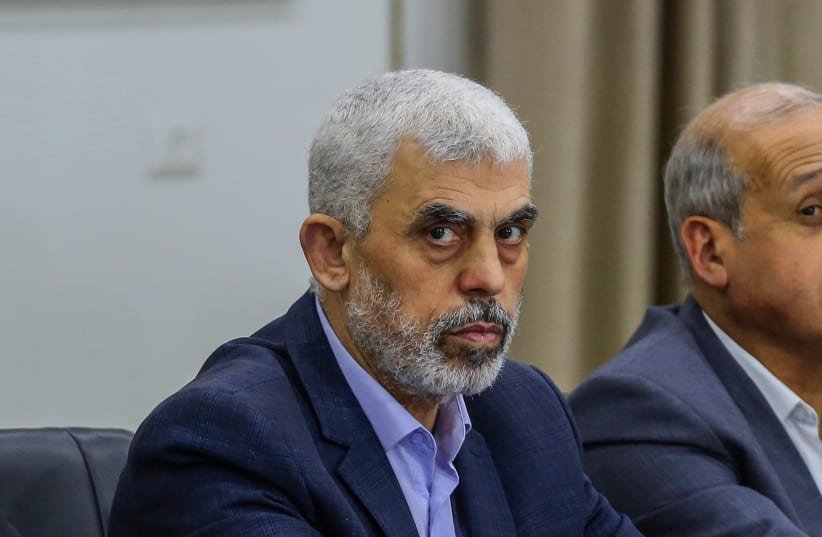Introduction to Yahya Sinwar
Yahya Sinwar is a name that resonates deeply in discussions about the Palestinian struggle. For many, he represents both hope and contention. As a prominent leader of Hamas, Sinwar’s actions and ideologies have shaped the trajectory of Palestine’s fight for liberation from Israeli occupation. But who exactly is Yahya Sinwar? What drives him, and how has his journey influenced the broader movement? In this exploration, we’ll dive into his life story, examining his early experiences, rise to power, leadership style, and the controversies surrounding him. Whether you’re well-versed in Middle Eastern politics or brand new to these issues, understanding Yahya Sinwar offers valuable insight into one of contemporary history’s most pressing conflicts.
Early Life and Background
Yahya Sinwar was born in 1967 in Khan Younis, a city located in the southern Gaza Strip. Growing up amid turmoil, his childhood was marked by the Israeli occupation of Palestinian territories. This environment fostered a deep sense of injustice and resistance within him from an early age.
Sinwar comes from a modest family that faced daily struggles under harsh conditions. His upbringing instilled values of resilience and commitment to his community’s cause. As he reached adolescence, he became increasingly involved in local activism.
In high school, Sinwar joined Islamic groups advocating for Palestinian rights. These experiences shaped his worldview and solidified his dedication to the liberation movement. The drive to fight against oppression would soon define his life’s path, setting the stage for future endeavors within Hamas.
Involvement in the Palestinian Liberation Movement
Yahya Sinwar’s involvement in the Palestinian liberation movement began at a young age. He was deeply affected by the ongoing struggles faced by his community. This prompted him to engage with various grassroots organizations focused on resistance.
As he grew older, Sinwar became actively involved with Hamas. The group sought to establish an independent Palestinian state and resist Israeli occupation. His dedication quickly distinguished him within its ranks.
Sinwar’s strategic mindset played a crucial role in shaping Hamas’ military tactics during conflicts. He emphasized both armed struggle and social programs as essential components of their mission.
His commitment extended beyond combat; he also focused on mobilizing youth for activism. Sinwar’s leadership inspired many Palestinians who viewed him as a symbol of resilience in their quest for freedom from oppression.
Imprisonment and Release from Israeli Prisons
Yahya Sinwar’s journey took a significant turn when he was imprisoned by Israel in 1988. His arrest came during a period of escalating tensions and violence in the region. He was charged with multiple offenses, including involvement in militant activities associated with Hamas.
During his time behind bars, Sinwar became a symbol of resistance for many Palestinians. He spent more than two decades incarcerated, enduring harsh conditions but also gaining insight into political strategies and operations.
In 2011, as part of a prisoner exchange deal known as the Gilad Shalit agreement, Sinwar was released alongside hundreds of other Palestinian prisoners. This moment marked not just his freedom but also re-energized his commitment to the Palestinian cause, further solidifying his role within Hamas leadership upon return to Gaza.
Leadership of Hamas in Gaza
Yahya Sinwar’s leadership of Hamas in Gaza has marked a distinct shift in the organization’s strategies and priorities. Since taking charge in 2017, he has emphasized military strength while also navigating complex political landscapes.
Sinwar’s background as a former military leader shapes his approach. He prioritizes resistance against Israel and seeks to enhance Hamas’s capabilities. Under his guidance, the group has maintained its armed wing while aiming for greater political legitimacy among Palestinians.
His leadership style is often characterized by pragmatism mixed with determination. This duality allows him to negotiate crucial alliances within Palestinian factions while promoting unity against external pressures.
Despite facing intense challenges—including Israeli airstrikes and internal dissent—Sinwar remains focused on maintaining control over Gaza. His tenure reflects both resilience and an unwavering commitment to what he views as liberation efforts for Palestine.
Efforts for Palestinian Unity
Yahya Sinwar has been a vital figure in the push for Palestinian unity. He recognizes that fragmented leadership weakens the fight against Israeli occupation. His focus has often been on bridging divisions among various factions.
Under his leadership, Hamas sought dialogue with rival groups like Fatah. These discussions aimed to create a unified front for Palestinians. Sinwar believes that collaboration is essential for effective resistance.
His strategic vision includes not just military action but also political alliances. By advocating for joint efforts, he hopes to strengthen Palestine’s position internationally. The goal is clear: unite diverse voices and foster solidarity within the community.
Sinwar’s approach emphasizes grassroots involvement as well. Engaging local leaders and mobilizing public support can help solidify this unity movement further. This effort reflects a broader understanding of resistance as more than just armed conflict; it’s about collective identity and purpose.
Current Situation and Future Plans
Yahya Sinwar finds himself at a crucial juncture in Palestinian politics and resistance. As the leader of Hamas, he navigates a complex landscape marked by both internal discord and external pressures.
Under his leadership, Gaza continues to grapple with humanitarian challenges exacerbated by ongoing conflicts. Sinwar’s focus remains on strengthening military capabilities while addressing urgent social needs within the enclave.
Future plans involve fostering unity among various Palestinian factions. He believes that collaboration is key to achieving lasting change against Israeli policies.
Additionally, there’s an emphasis on international engagement. Sinwar seeks to amplify global awareness regarding Palestine’s plight and garner support from sympathetic nations and organizations.
His vision for future developments hinges not only on armed resistance but also on potential diplomatic avenues that could reshape the narrative surrounding Palestinian liberation efforts.
Impact of Yahya Sinwar on the Palestinian Liberation Movement
Yahya Sinwar has become a pivotal figure in the Palestinian liberation movement. His leadership has significantly influenced Hamas’s strategy and goals, shifting focus towards armed resistance while also advocating for political engagement.
Under his guidance, Hamas strengthened its military capabilities and cultivated grassroots support across Gaza. Sinwar’s approach resonates with many Palestinians who feel marginalized by ongoing conflicts and occupation.
His emphasis on unity among different factions within Palestine aims to present a consolidated front against Israel. This effort reflects an understanding of the need for collaboration amidst internal divisions.
Sinwar’s impact extends beyond military tactics; he engages in dialogue that seeks international recognition of Palestinian rights. He connects deeply with younger generations, invigorating their sense of purpose in the struggle for independence.
As a controversial yet influential leader, Yahya Sinwar continues to shape perceptions surrounding the fight for Palestinian self-determination.
Criticisms and Controversies Surrounding Sinwar
Yahya Sinwar, a prominent figure in the Palestinian liberation movement, has faced significant criticism. Detractors often highlight his hardline approach and militant tactics as obstacles to peace negotiations.
Some argue that his leadership style prioritizes military solutions over diplomatic efforts. This has led to fears of escalating violence in an already tense region. Critics within Palestine also question his alignment with Hamas’s ideologies and methods.
Internationally, Sinwar is viewed with skepticism by many governments. They see him as a barrier to stability and dialogue between Israel and Palestine. His controversial statements regarding resistance have sparked outrage among those advocating for peaceful resolutions.
Moreover, accusations surrounding human rights violations under his watch complicate perceptions further. The complexity of the Israeli-Palestinian conflict intensifies debates about Sinwar’s role in shaping its future trajectory.
Conclusion :
Yahya Sinwar has emerged as a prominent figure in the Palestinian liberation movement. His journey began with humble origins and evolved into significant leadership within Hamas, where he advocated for the rights of Palestinians. Sinwar’s experiences in Israeli prisons shaped his resolve and commitment to his cause.
Throughout his tenure, he has worked tirelessly towards fostering unity among various Palestinian factions. His leadership style is both strategic and controversial, drawing mixed reactions from supporters and critics alike. The challenges ahead are immense, but so are the aspirations of those who believe in a liberated Palestine.
Sinwar’s influence continues to resonate profoundly across Gaza and beyond. As events unfold in this region filled with complexity, it remains crucial to observe how Yahya Sinwar’s vision will shape the future of Palestine’s struggle for liberation.









